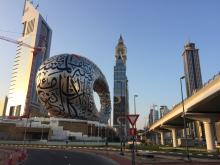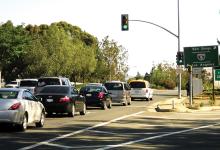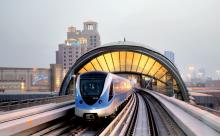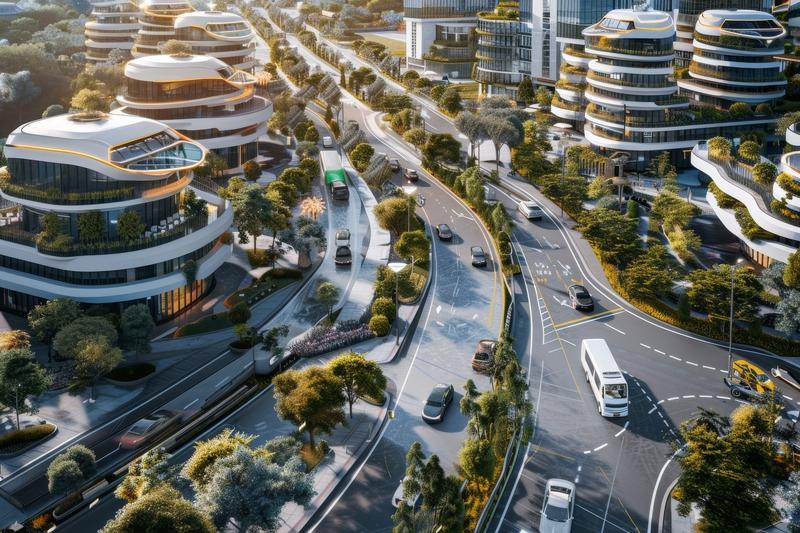The number of signalised junctions in Dubai has increased to 412, most of which are controlled by the Traffic Control System Centres of the Roads & Transport Authority (RTA). According to engineer Maitha bin Udai, CEO of RTA's Traffic and Roads Agency, the agency is currently working on an integrated project to synchronise and upgrade databases for 180 main signalised junctions. Some 60 of them will be completed in the current year, and 120 next year, she said, adding that the implementation of the project
The number of signalised junctions in Dubai has increased to 412, most of which are controlled by the Traffic Control System Centres of the 6700 Dubai's Roads and Transport Authority (RTA).
According to engineer Maitha bin Udai, CEO of the RTA's Traffic and Roads Agency, the agency is currently working on an integrated project to synchronise and upgrade databases for 180 main signalised junctions. Some 60 of them will be completed in the current year, and 120 next year, she said, adding that the implementation of the project was in response to recommendations in a traffic study conducted by the RTA to improve the performance of the traffic signals in the emirate. The experimental studies conducted on some junctions in Dubai showed that the trip time dropped by 15 per cent in areas covered by the study and in which synchronisation and database upgrades were undertaken.
"The Agency attends to training engineers and operators of the intelligent traffic systems on a number of traffic plans for synchronising the timing of traffic lights, where such plans may in some junctions reach six different plans for a single traffic light per day, depending on peak hours and frequency of congestion in roads leading to junctions,” said Engineer Maitha. “The Agency also trains them on the latest techniques of signals timings, and methods of linking a number of traffic lights. The RTA is keen that the lapse time for all directions shall not exceed 240 seconds and that the connected traffic signals should not exceed 16 signals," she continued.
In respect of the traffic control centre, Maitha said the capacity of devices operating the signalling system has been upgraded at the control centre in order to manage the current and future of signalised junctions. "The Centre is equipped with the latest version of data analysis system to analyse information transmitted by sensors. The number of surveillance cameras increased to 240 cameras, and the Agency is moving ahead with plans to improve the calibre of traffic services rendered to the public," said Maitha.
According to engineer Maitha bin Udai, CEO of the RTA's Traffic and Roads Agency, the agency is currently working on an integrated project to synchronise and upgrade databases for 180 main signalised junctions. Some 60 of them will be completed in the current year, and 120 next year, she said, adding that the implementation of the project was in response to recommendations in a traffic study conducted by the RTA to improve the performance of the traffic signals in the emirate. The experimental studies conducted on some junctions in Dubai showed that the trip time dropped by 15 per cent in areas covered by the study and in which synchronisation and database upgrades were undertaken.
"The Agency attends to training engineers and operators of the intelligent traffic systems on a number of traffic plans for synchronising the timing of traffic lights, where such plans may in some junctions reach six different plans for a single traffic light per day, depending on peak hours and frequency of congestion in roads leading to junctions,” said Engineer Maitha. “The Agency also trains them on the latest techniques of signals timings, and methods of linking a number of traffic lights. The RTA is keen that the lapse time for all directions shall not exceed 240 seconds and that the connected traffic signals should not exceed 16 signals," she continued.
In respect of the traffic control centre, Maitha said the capacity of devices operating the signalling system has been upgraded at the control centre in order to manage the current and future of signalised junctions. "The Centre is equipped with the latest version of data analysis system to analyse information transmitted by sensors. The number of surveillance cameras increased to 240 cameras, and the Agency is moving ahead with plans to improve the calibre of traffic services rendered to the public," said Maitha.









